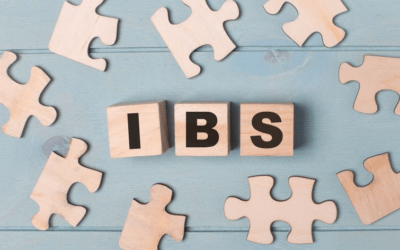Eating low FODMAP on a budget might seem like a daunting task, but with the right strategies and creativity, it’s entirely achievable. The low FODMAP diet, designed to alleviate symptoms of irritable bowel syndrome (IBS), whilst identifying triggers, can be budget-friendly. It just takes a bit more thought and resourcefulness. In this blog, I’ll explore practical tips and delicious recipes to help you enjoy FODMAP-friendly eating without breaking the bank.
1. Plan your meals
Meal planning is the cornerstone of budget-friendly eating even on the low FODMAP diet. Take some time each week to plan your meals and snacks. Consider the low FODMAP foods you already have and build your menu around them. Planning helps you avoid impulse purchases and reduce food waste. If you have some time on your hands, have a cooking day and freeze low FODMAP meals in meal-size portions. This is a great way of taking advantage of discounted food items.
2. Shop smart
Before heading to the supermarket, make a list based on your meal plan. Stick to your list and avoid buying items that are not FODMAP-friendly or unnecessary. Utilize coupons, discounts, and loyalty cards to save money on staple items like rice, canned tuna, eggs and frozen vegetables. Seek out some bargains in the ‘free-from’ aisle, where items are often reduced. Bread products freeze well. Never go shopping when you’re hungry, as you will definitely spend more!
3. Buy in bulk
Buying pantry staples in bulk can save you money in the long run. Some larger stores offer bulk or catering-sized items like rice, quinoa, oats and spices. This way, you can buy the foods you need and reduce packaging waste too.
4. Embrace seasonal produce
Seasonal fruits and vegetables are often more affordable and flavourful. Incorporate FODMAP-friendly options like carrots, bell peppers, courgettes and strawberries into your meals. You can also explore local farmers’ markets for cost-effective produce. Even better, grow your own. There’s nothing quite like the taste of home-grown potatoes or raspberries.
5. Cook at home
Cooking your meals from scratch is not only cost-effective but also allows you to control the ingredients in your dishes. Simple recipes like stir-fries, rice bowls and casseroles can be customized to fit your FODMAP requirements. Although you may take all possible precautions when eating out, something unsuitable always seems to slip through. Cooking with your own raw ingredients is not only safer, but cheaper too when eating low FODMAP on a budget.
6. Freeze leftovers
Don’t let leftovers go to waste. In fact, cook extra anyway and freeze for future meals. Batch cooking and freezing portions can save you time and money on busy days. Soups, stews and composite dishes like curries and casseroles are perfect candidates for freezing. Remember to label well with contents and a date.
7. DIY snacks
It’s always a good idea to have some low FODMAP snacks to hand. But, instead of buying expensive pre-packaged snacks, create your own FODMAP-friendly snacks at home. Make your cereal bars using low FODMAP nuts, seeds and dark chocolate. Seeded crispbread, Welsh cakes or oatcakes can also be excellent options.
FODMAP-friendly recipes on a budget:
- Rice and Veggie Stir-Fry:
- Cooked rice (use leftover rice for added savings)
- Carrots, bell peppers and courgette (seasonal and affordable)
- Your choice of protein (tofu, chicken, or shrimp)
- Low FODMAP stir-fry sauce (tamari, sesame oil, ginger and garlic-infused oil)
- Quinoa Salad:
- Quinoa (buy in bulk)
- Canned tuna or cooked chicken
- Cucumber, cherry tomatoes, and spinach
- Lemon vinaigrette (lemon juice, olive oil, salt and pepper)
- Omelette with Veggies:
- Eggs (budget-friendly protein)
- Spinach, bell peppers and tomatoes
- Lactose-free cheese
- Served with a side of rice or gluten free toast
- Rice Cake Stack:
- Rice cakes (affordable snack base)
- Peanut or almond butter (low FODMAP nut butter)
- Sliced banana or strawberries (seasonal fruit)
- A drizzle of maple syrup (in moderation)
Improving IBS symptoms on a budget
Many IBS sufferers find an association between their symptoms and the foods they eat. An increase in symptoms negatively effects not only physical health, but mental health too. In the UK, ~1 in 5 people suffer from IBS symptoms. The low FODMAP diet is an efficient way of identifying food triggers. It’s tricky to do alone though, so should always be supported with the skills and knowledge of an IBS Dietitian trained in FODMAPs. With support, sufferers can identify their triggers and improve management of IBS symptoms. An IBS dietitian will provide practical ways to help fit the low FODMAP diet into your lifestyle and budget. Take a look at my other recipes and blogs.
Conclusion
Eating low FODMAP on a budget is all about being mindful, resourceful and creative in the kitchen. With careful planning, smart shopping and a willingness to cook at home, you can enjoy delicious meals without straining your finances. By embracing affordable ingredients and exploring simple yet flavourful recipes, you could even enjoy low FODMAP. This will not only support your digestive health but also discover the joy of budget-friendly, wholesome eating. I’m an IBS Dietitian based in Cardiff, but work across the UK. I offer a free initial telephone consultation, so why not arrange a call today.
Change your life in just three sessions
Need help to manage your IBS symptoms? I’m based in Cardiff, but work with IBS sufferers across the UK through online sessions. The vast majority of my clients have found that only three sessions are needed before they feel confident to move forward on their own. I will send you booklets, which have an extensive list of all the foods you can eat on the low FODMAP diet. I’m available for advice and support between sessions. Find out more about my IBS symptoms relief package. I offer a free initial telephone call for you to decide whether the low FODMAP diet is right for you. So give me a call or fill out the contact form.
Many of my clients say that working with a specialist IBS dietitian has been life-changing, and are finally managing to live more comfortable lives.
Read about previous client experiences and to help you decide it this is the right approach for you, see my webpage about IBS treatment.
Disclaimer: This blog is for information purposes only and does not substitute for professional medical advice. Please consult your healthcare provider for personalised diagnosis and treatment of IBS.




